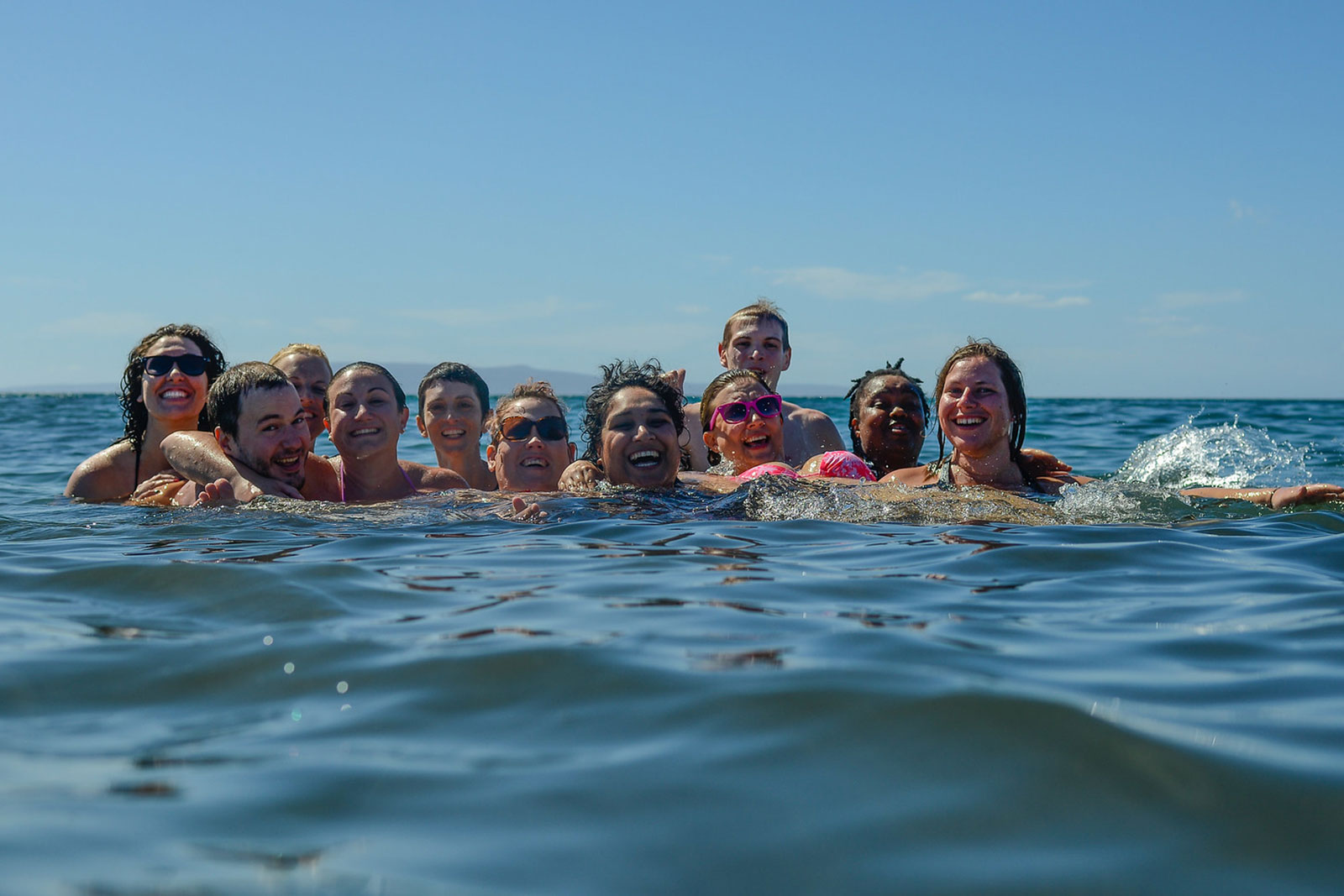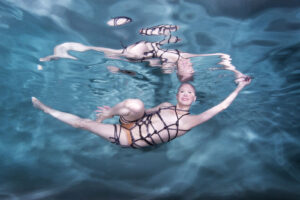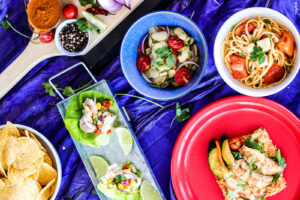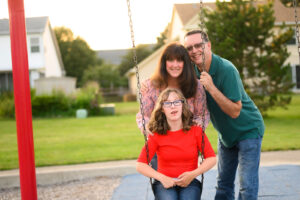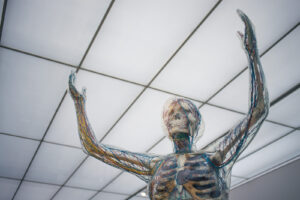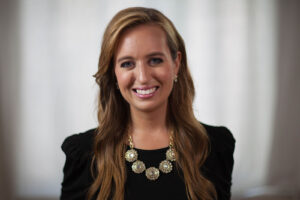In 2015, throughout months of chemotherapy, surgeries and radiation for stage III triple negative breast cancer, Beth Peck was determined to keep up her pre-cancer momentum and maintain a busy professional and family life.
But after treatment ended, Peck shares, she came to a difficult realization about how she really felt about being a cancer survivor in her early 30s. “I was alive … I was supposed to be so happy, but I wasn’t. I was so miserable and scared and sad,” she says. “I had all these feelings, and no one to talk to.” That’s when she realized she had been through a serious traumatic experience and she needed to do something about it.
Peck began researching and found Project Koru, an organization that facilitates outdoor adventure camps for young adult cancer survivors. Project Koru strives to empower young adults to move forward after their experience with cancer. The organization does this through its focus on creating community through meaningful outdoor experiences. Project Koru’s signature program offering is Camp Koru, which includes Snow Camp in Hood River, Oregon and Surf Camp in Maui, Hawaii. Additional Project Koru programming includes ongoing support for past camp participants as well as virtual gatherings.
In 2016, Peck signed up to attend Surf Camp in Maui and her life path was forever changed. She can still clearly remember the whirlwind of emotions leading up to her surf camp experience.
“I was terrified to put on a swimsuit. I had scars all over my body—I didn’t want people to see those. I didn’t even know this new body I was in,” she says. Plus, Peck hardly identified as an athlete, and flying to a remote destination to spend a week surfing with a group of strangers was not exactly in her comfort zone. “Saying I wasn’t super athletic back then is an understatement,” she shares.
Surprisingly, diving into that discomfort was just what she needed to start healing from the trauma of cancer. Camp Koru was the first time she connected with people her own age who could relate to her experience. “I instantly felt this sense of family,” Peck says about meeting her camp peers and counselors. “There’s this unexplainable connection that you have.”
As Peck experienced firsthand during her own program, Project Koru provides transformative experiences for young adult cancer survivors. Thrivers receive support so they can rebuild from many of the challenges that come along with a cancer diagnosis like the stress, fear and trauma.
It’s fitting, then, that koru is a Hawaiian word meaning “rebirth.” In the intimate, remote setting of a weeklong camp with other young adult survivors, Peck says, “there’s a lot of what we call ‘breaking open.’ There’s a lot of vulnerability that happens at our camps—a lot of bonding.” Camp Koru provides challenges for both mind and body, and participants start a journey of transformation to discover who they might become post cancer. “It’s the most beautiful thing to watch,” Peck says.
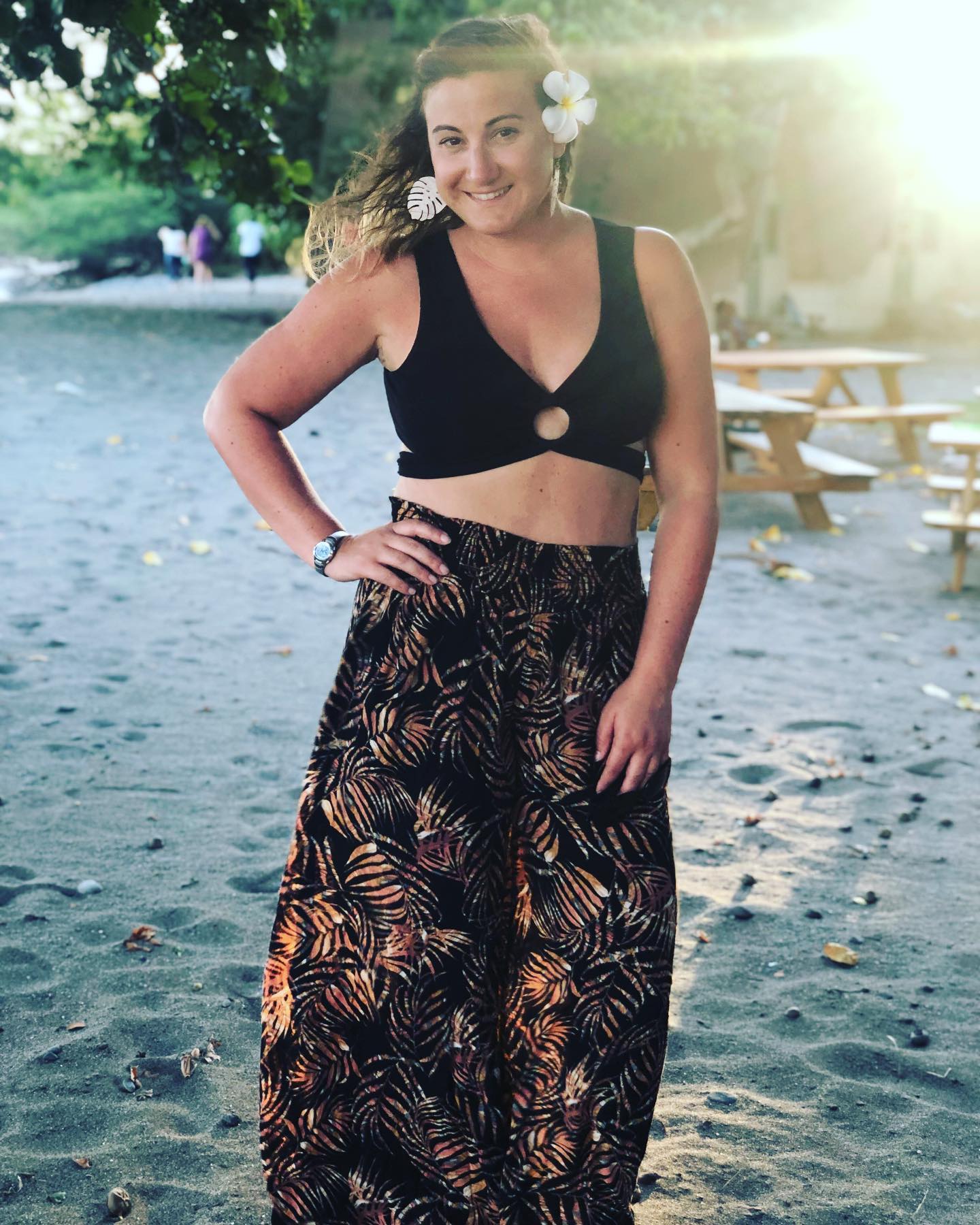
Peck certainly underwent her own transformation at Camp Koru. “After going through the ringer with your body—having chemo, radiation and I think I’m at five surgeries now … After all that, standing up on a surfboard for the first time feels pretty damn spectacular,” she shares. “I realized that my body can do this. I’m not broken. I’m just different.”
After such an impactful experience at surf camp, Peck knew she wanted to get involved with Project Koru. She first started volunteering at the organization’s fundraising event, Kiteboard 4 Cancer, and later served as a Camp Koru counselor. And with her professional background in fundraising, she was a great fit to assist the organization as chief advancement officer. When the opportunity came along to be considered for an opening as the Project Koru executive director, Peck threw her hat in the ring and hasn’t looked back since.
Project Koru is an organization “for survivors, by survivors,” Peck explains. With a strong survivor presence in the organization’s program staff and board of directors, participants know they are in the hands of people who get it. This survivor model shows participants that even if they’re currently in a bad place with their cancer experience, it doesn’t always have to be that way. And because the need for support never truly goes away, the organization offers ongoing survivorship programs to all its alumni through the Koru Continuum.
Peck is pleased to share a number of developments within Project Koru over the last year and a half. While in-person programs were cancelled for 2020, the organization took the opportunity to create a variety of virtual offerings for young adult cancer survivors to stay connected. Online Koru Communities programming offers workshops, book clubs and virtual 5K training as well as casual game nights and other meetups.
Acknowledging a lack of diversity among previous program participants, the organization has also formed an equity and inclusion committee to work on outreach efforts and develop programming that is more accessible for a diverse range of program attendees across the country. While camps are provided at no cost to participants, travel expenses for the Maui program in particular can make the program cost prohibitive for young adults who could otherwise benefit from the Camp Koru experience. In improving program accessibility, the aim is for Project Koru to be “the type of organization that is fully inclusive to all young adult cancer survivors,” Peck says.
Project Koru plans to resume in-person programs, including the Maui Surf Camp and Snow Camp in Hood River, Oregon, this fall, in addition to continuing work on new program locations and online gatherings.
Reflecting on her journey from hesitant camp attendee to leading the organization in new directions to serve even more young adult cancer thrivers, Peck says, “It’s been a wild ride, but I’ve loved every second of it.”

